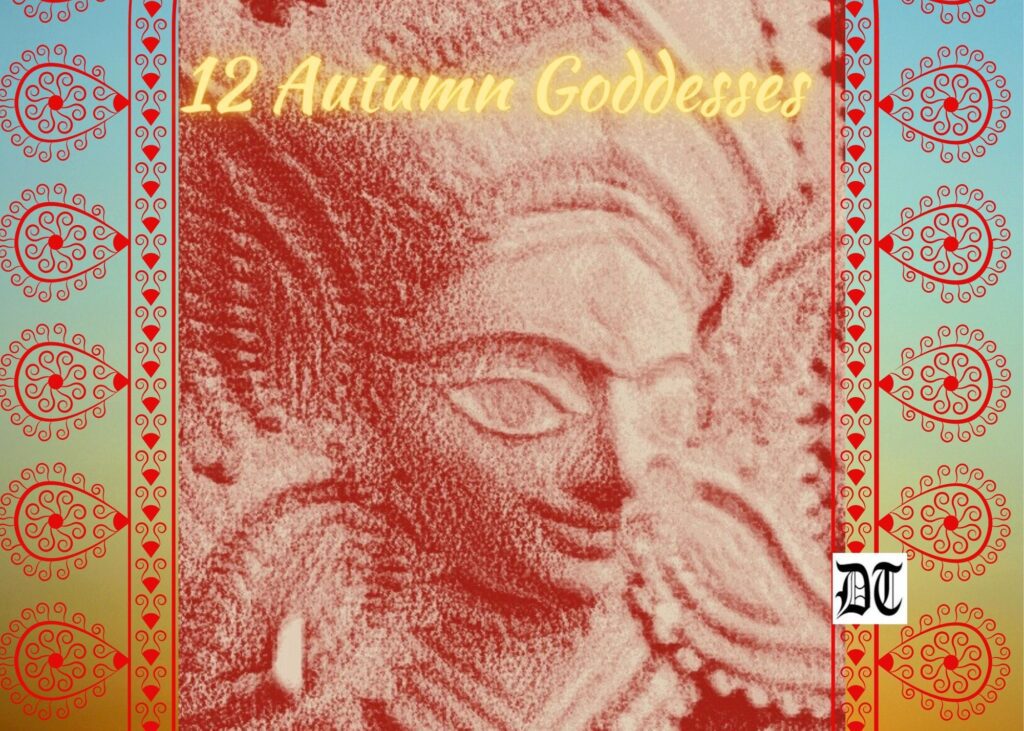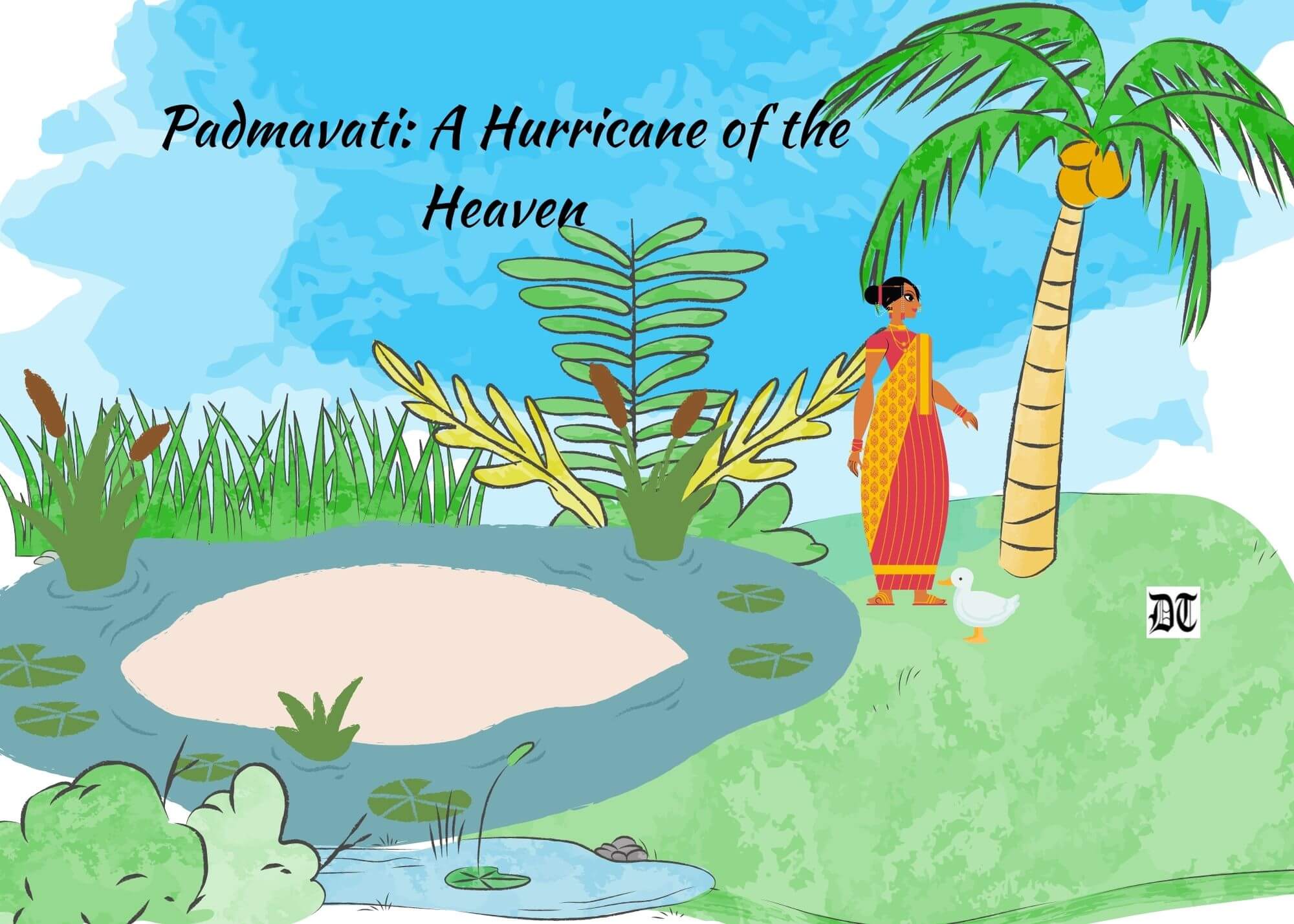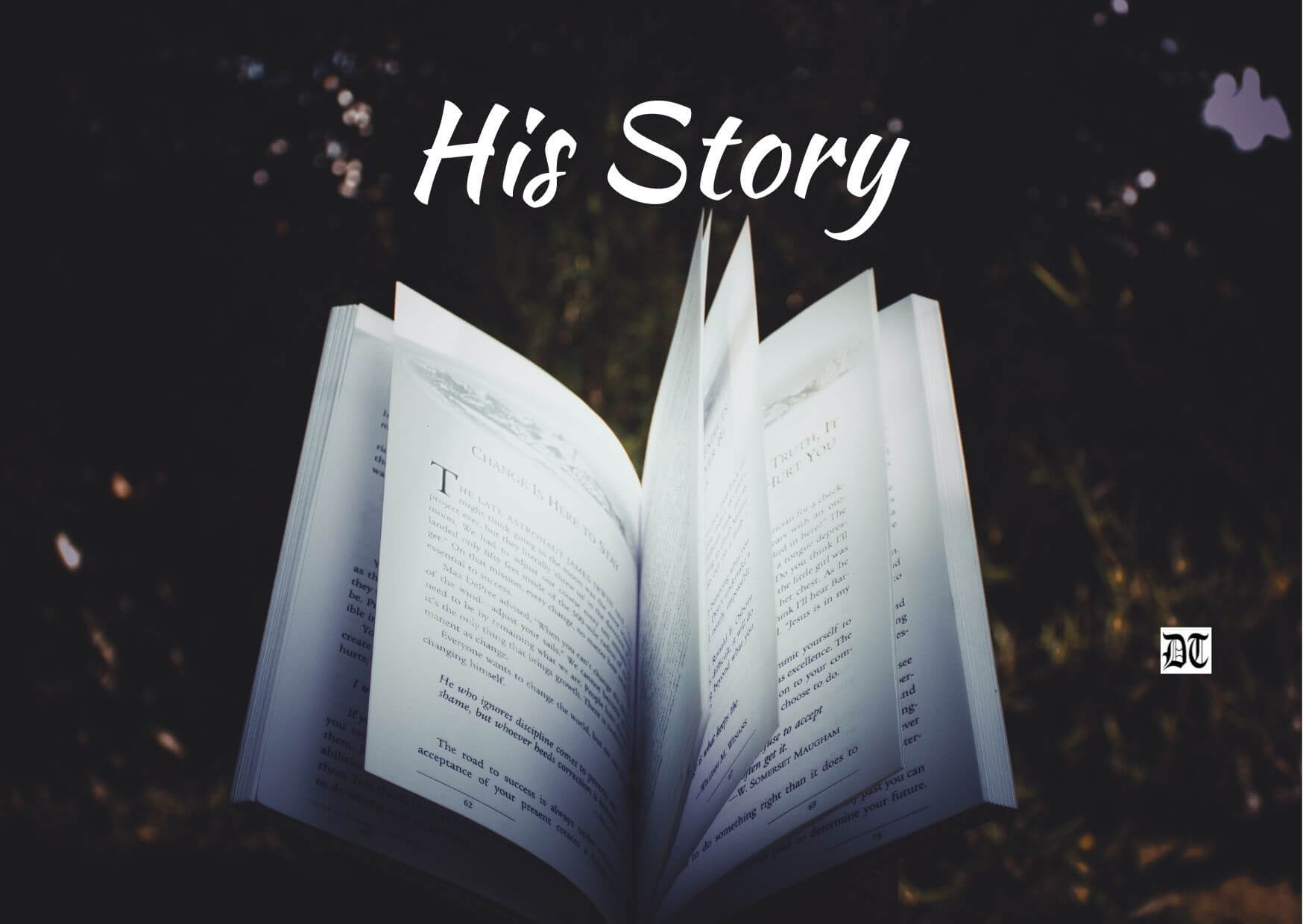A teenager, Padmavati, tried to save her pet duck, Hari, from being sacrificed at the altar of the Goddess. No one could ever imagine challenging the oppressive village landlords, the Chatutis and their priests. But Padma committed blasphemy by stealing the sacrificial duck. What happened to her? Why did fear replace wrath and rage? Here’s a story by Subhajit that challenges blind faith and superstition as part of the Durga Puja special issue, exclusively in Different Truths.

Prologue
Padmavati, adoringly called Padma, couldn’t withstand the painful sacrifice of the Aves. As the idol that broke the rain of tears, her heart bled at dawn. She tried her best to cast her bright humane light on the darkened souls, but the masters of evil, the lawmakers, couldn’t stand and watch the protest of a teen towards the irrational rituals that had engulfed and blinded rational minds for years. She was made to pay back, pay for her stand. The sleek and sleazy worshippers took no time to shed their reptilian skins and come out in real forms. But the Goddess had a different plan, which was witnessed only by the silent Aves and the ineffectual idol that was worshipped for a long time…
The Narrative
Worship meant to please a feminine strength of the underworld that had once destroyed the kingdom of a merchant. His seven sons were poisoned. Their palace was burned down. The luxuriant Saptadinga (a mythical decorated boat used by the rich merchants of Bengal) was drowned. All these happened to a Shaivite (devotee of Lord Shiva). The indefatigable toil of a bride to save her beloved, as narrated in the folklore, was for the sake of her recognition as a goddess. It also epitomised that women were always denied and dejected on earth or the heavens.
That there were buckets of milk to administrator of poison was a mere gesture that nothing was of any use without the sacrifice of the purest blood. It seemed as if the hunger for blood and flesh was far more overwhelming in the devotees than in the adored deity. How could a mother feed on the blood of a sect of her innocent children? Unfortunately, this question would never again be voiced. The protest had been silenced forever.
That evening, before the village women went out to fetch holy water for worship, Padmavati sat on the mossy stairs of the bank and stared at the glowing red of the setting sun. What a beautiful site it was! The sky was clear, and thin strips of clouds flew around to scatter unique hues of crimson red with golden yellow and serene blue. The herons flew like blackbirds to distant places. The ducks quacked on the calm river in unison. Reaching the bank, the ducks began shaking off the water and preening themselves. Poor birds! They were the offerings at the end of the worship, and since ducks are not endangered species, nobody cared about them.
The earth was about to fall asleep in the darkness of night, a sound sleep to cover herself from the malicious extravaganza and show that was to begin that night.
Padma felt butterflies in her stomach. She was scared, anxious and sorry for herself. Her pet duck, Hari, was sold by her greedy father for his drinks and unfortunately, he was bought for the first sacrifice the following day at the Chatuti house. It was a dazzling white duck, the one seen in the portraits of the Snake Goddess. It was believed that she would be most pleased if offered a white duck. Padma resisted and opposed every single day with every possible way to prevent all this. But, she was helpless. Nobody had ever spoken a word against the most prosperous Chatutis. She was too small – in age, wisdom and status to oppose their power.
The drummers beat their drums aloud in joy and happiness.
Any protest was equivalent to throwing an open challenge to their oppressive might. It was evening. The entire village was immersed in the festive mood. Women began blowing their conches and adorned themselves in new clothes. They went to fetch the holy water.
The drummers beat their drums aloud in joy and happiness. The pavilion was set, embellished with lots of lights and flowers. After all, it was the famous Chatuti family’s ceremony. The idol was beautifully decorated with gold and silver, a thick garland and a floral tiara. The Chatutis dressed in precious outfits. Who knew that night would seem endless?
As night fell, the village women returned with the water pots and placed those close to the altar. With great éclat, the festival began. The flower trays were arranged, and the priests drew auspicious signs on the pots. They placed the water pots in front of the deity and began chanting the hymns praising the Goddess. Women were making lotus garlands. Men were busy distributing tokens for the orts of the Goddess, and children were running around in gaiety. The adulation continued for the entire night as it intrigued excitement in the pupils.
It was about to dawn when the rituals ended. It was time for the sacrificial ceremony to begin. All the devotees stood in a queue with their offerings for the priests with a shining sharp chopper. The first offering was to be brought. Guards were ordered to bring the fair Aves after bathing those. But where was the duck? In the grandeur of events, none had noticed when Hari went missing. Missing? How could a duck escape the eyes of so many people?
How did it get the power to untie the knot at its feet?
How did it get the power to untie the knot at its feet? Each and everyone understood that somebody had stolen her. But who? No one in the village had the guts to look at the eyes of the Chatuti family. Stealing their property was blasphemy, a big danger! Who else could it be? When the guards were bringing Hari, Padma opposed and rebuked them.
She had threatened them to take her Hari back before dawn. So the culprit could be none other than Padma. The vital question was: Where was Padma? Obviously not at the temple, but where could she hide? The Chatutis was seething in rage. So were the priests.
They were very angry. The head priest commanded the guards to begin the hunt. Padma and Hari were needed before dawn, alive. The guards hurried out in no time, dead or alive. Padma was needed because it was a matter of the life and death of the villagers.
Time was less. The sky was getting clearer. Dawn would break any moment. The offering was required for the village’s safety, and it wouldn’t begin without the snow-white duck. It was a tradition that had been followed for generations. Women were busy chattering. They were afraid of what would happen to Padmavati. The rumour mill spread many stories.
The Chatutis were trying their best to avoid the chaos. Few intelligent men had already left the temple to avoid any unlikely situation and take some rest. All had been tired of working all night and were unprepared for the unwanted trouble. In fact, the funniest part was that the anxious devotees had lost all their devotion. Their behaviour was ample proof that all their religiosity had vaporised like the camphor burning in the earthen lamps at the altar. All their faith had fled with Padma, or so it seemed, to some unknown land.
At last, the dawn broke. No human power could stop its arrival. The first soothing light glorified the sky, dispelling the darkness of the night. Nature awoke from its dead sleep to adore a new day. The glowing red sun arose from behind the forests and the gentle morning breeze blended with the incense of lotuses. Nature paid her homage to the deity with the sun’s aurora. However, the guards didn’t return still. The priests helplessly displaced the chanted pot and let the immersion process begin. The pavilion was almost empty; a few illiterates stood there, panicked and whispered about the consequences that the inauspicious situation might bring in the future. The priests were the answer to all the queries. Hence all the villagers relied on and hoped for some solution from the priests’ side.
The eerie silence brought a massive change right then.
The eerie silence brought a massive change right then. Few rational thinkers spoke for the first time that the mishap was indeed a blessing in disguise. For the first time in their life, the illiterate villagers questioned the priests and Chatutis if the so-called ‘sin’ was Mother’s voice against the blood bath! New voices joined in. Fear and doubts were writ large on the faces of the higher clans. They had always feared to question and suppressed all sorts of dissenting voices for decades and generations. The sacrifice was an excuse to open the doors to a new source of income. The ducks taken as taxes from the villagers were sold back to them at higher costs every year during the festival. It was a law enforced strictly in the village, followed blindly by the dwellers for the past three generations.
The chaos turned revolutionary. Just then, the guards arrived. They stood like lifeless statues with their heads hung in shame and fear. They were unable to find Padma. They searched every nook and corner, but she was nowhere. Her father was in no position to answer any question. He was dead drunk. The mob had already cornered the Brahmins, and the guards’ failure added to the flames. The Chatutis and priests frowned and burst out on the guards.
Neither could they nor could their loyalists contain their fury at the utter callousness of the guards. All wrath was let loose on the loyal guards.
Punishment was pronounced for the guards. Scared and perplexed by what they had witnessed, they fell on their knees and begged for mercy. They insisted that they weren’t empty-handed. Hearing that, the eyes of the highest clans sparkled with new hope, leaving all others in shock and paradox. Two of them went to the temple’s backyard and brought something to the courtyard. Everybody was curious to know what it was. The guards laid it down on the bed of lotuses where the offering was to be made, just in front of the idol. The entire village was encircled to see what it was. Nothing could be detected, draped in a red cloth from top to bottom. All looked at each other’s faces. Nobody dared to open the cover. The confused head priest was consulted. Gathering his guts, he sat on his haunches and gradually opened the cover. Everybody was surprised! They didn’t expect it at all. The head priest jumped ten hands away. It was Padma, cold as ice. She held a calm look on her face. Her body didn’t stiffen much. The panicked tumult gained momentum. Questions and predictions gained momentum. Suddenly somebody from behind yelled, saying that Padma just looked like the idol! To the astonishment of one and all, the idol and Padma were dressed the same: cloth, jewellery, garland, everything. She was dressed just like the deity. The most horrific fact is the idol was ditto Padma.
As if the idol maker had observed Padma and made the idol.
Nobody knew what it meant. How could they not notice? Were they so engrossed in the pomp that they didn’t even observe that the deity was a mirror image of Padma? Same hands, eyes, nose, lips and face! How could it be possible? As if the idol maker had observed Padma and made the idol. In her ice-cold fist, she held a bunch of red and white lotuses and a white porcelain duck. Was that Hari? How could it be? The entire night was a horrific experience that baffled the entire village.
Soon the news spread to other villages. The priests fled from the village. Where? No one knew. The Chatutis closed the gates to the temple, leaving their land ownership. The villagers never brought any offerings or prayed in that after that. Actually, they were scared to worship the Goddess. But they understood that night ‘the Goddess was angry.
Epilogue
Yes, The Goddess was angry. No Supreme power wants sacrifices to fulfil our selfish wishes! Gods are just like our parents. They give their children what they want with lots of unconditional love. If they need something in return, then its faith and respect like all other living beings. It is no real faith if it includes bribery. And offering blood to please is never a good omen. It is we who create rituals, ceremonies and sacrifices. It is the mob that wants blood. It is only the mob that seeks grandeur. The mob is heartless; unfortunately, no power on Earth can change the thoughts other than the Mob itself!
Picture design Anumita Roy, Different Truths







 By
By
 By
By